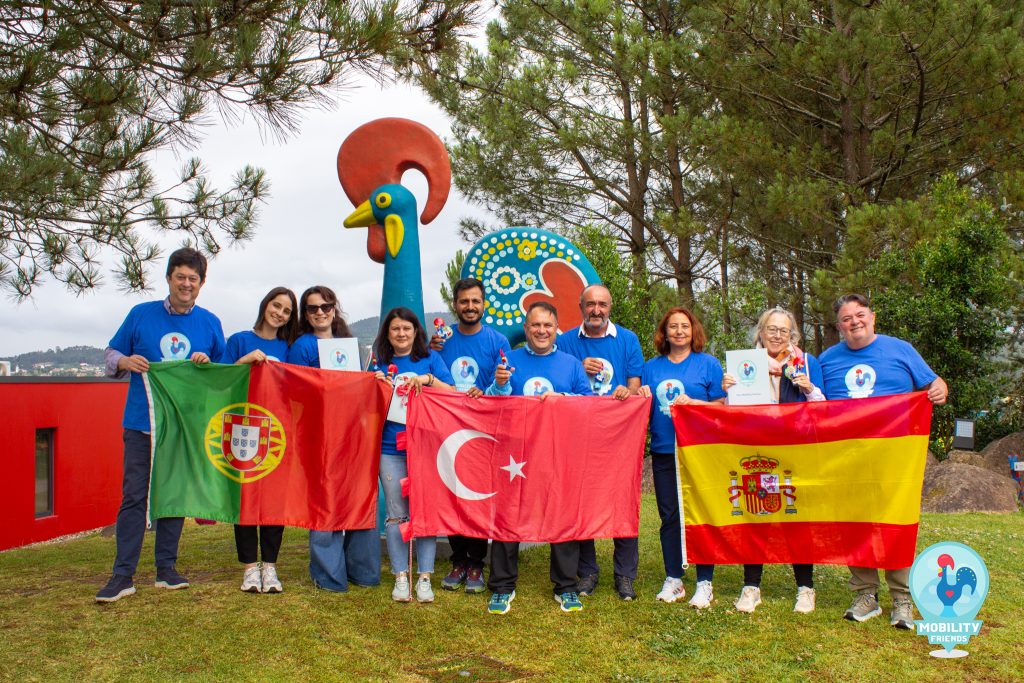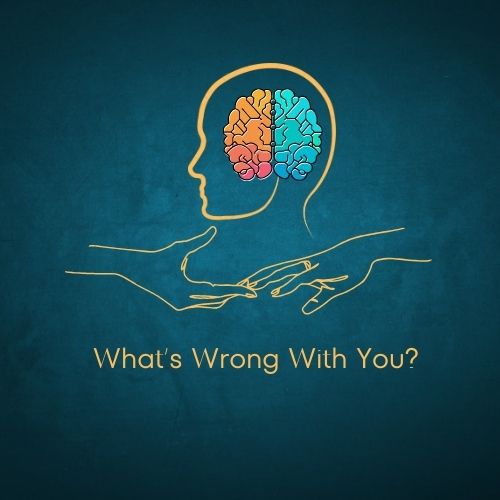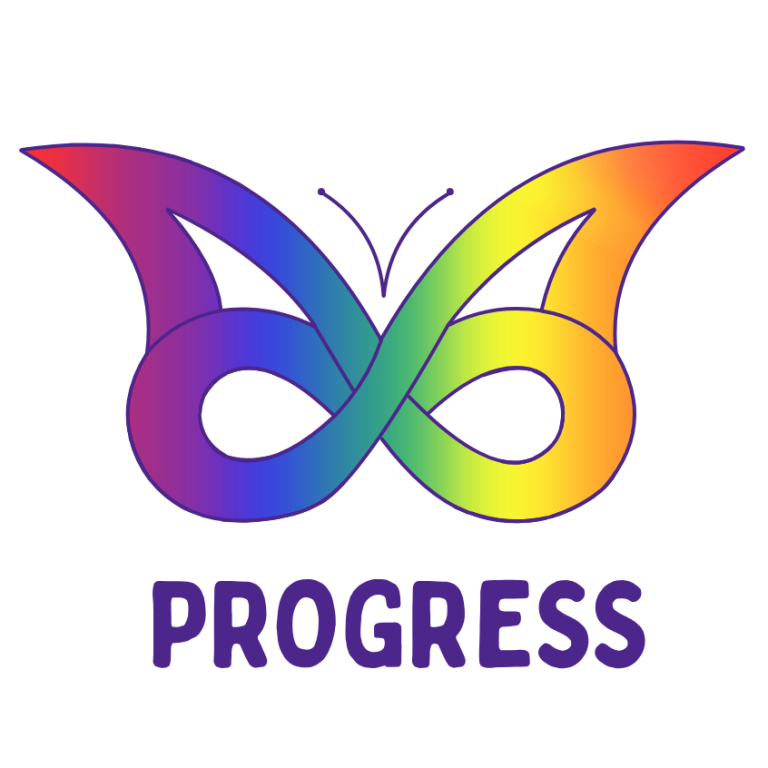Project Objectives:
To ensure the mental health well-being of individuals who are under various mental health risks, socio-economically disadvantaged or have limited access to mental health services.
This project will include activities aimed at four fundamental components of Mental Health Literacy to achieve our goals.
1) Protection Awareness:
Characteristics, to whether he or she is aware of his or her goals in life, his or her awareness of his or her potential, and the quality of his or her relationships with other people. Shortly, it is an effort to provide the continuation of the person’s well-being regarding the protection of mental health.
2) Recognition:
Recognition can be broken down into symptom or illness recognition. Symptom recognition is the ability to detect beliefs, behaviors, and other physical manifestations of mental illness, without knowing explicitly which disorder they link to. Specific illness recognition is the ability to identify the presentation of a disorder, such as “major depressive disorder”
3) Knowledge:
Knowledge is the largest component of mental health literacy and important topics in Mental Health include the following:
- How to take informations
- Risk Factor
- Reason of mental health
- Self-treatment / Self-helping
- Professional Support
4) Attitudes:
Attitudes are divided into two components: Attitudes towards mental disorders or people with mental disorders, and Attitudes towards seeking professional help or treatment.
First TPM
The first Transnational Project Meeting (TPM) of the “What’s Wrong With You” roject was held in Balikesir, Türkiye, bringing together partners from Türkiye, Spain, and Portugal. During the meeting, we had the opportunity to present the Result Reports from the initial survey on mental health conducted at the start of the project. These findings will play a key role in assessing the project’s future impact on the community.
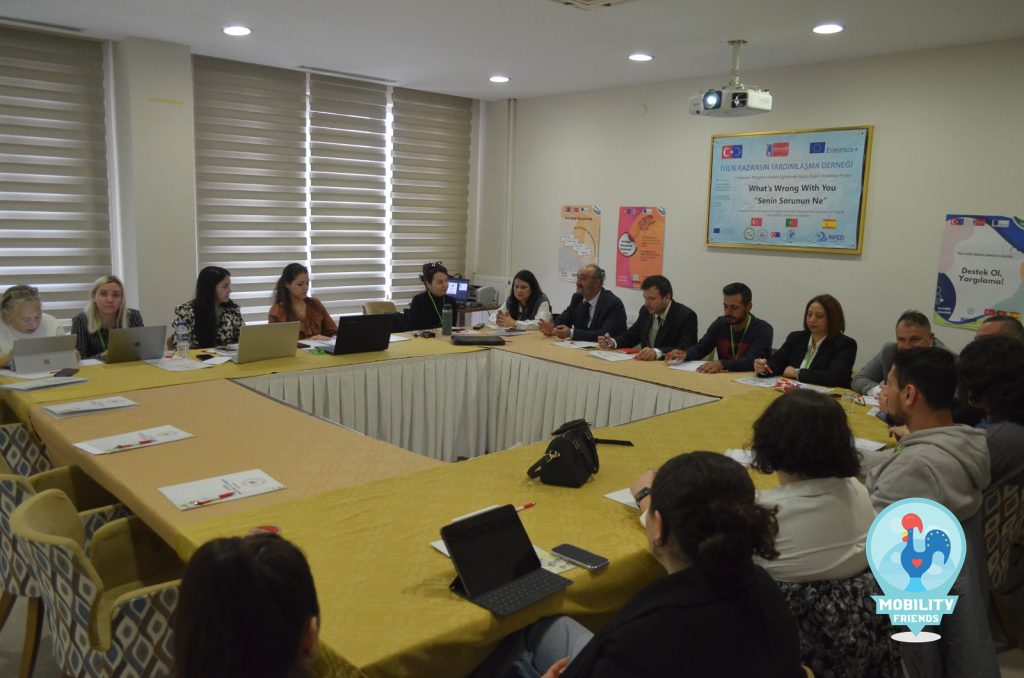
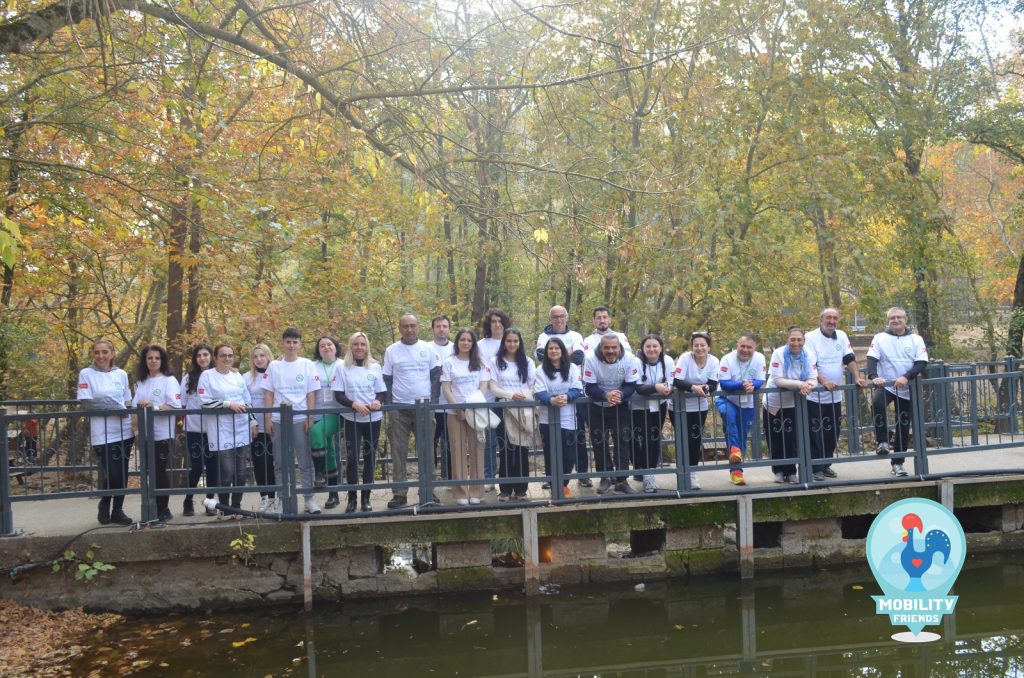
We also outlined the next steps for the project and discussed individual responsibilities for developing the Training Module, E-learning Module, and 3D animations to be included in the E-learning platform. Additionally, the project’s website was officially presented. As part of the meeting, we participated in a mental health literacy ecotherapy session, which included a nature walk followed by a reflection on how the session contributed to our mental well-being.
Another highlight was the presentation of a report on Strategies for Raising Mental Health Awareness in the participating countries. Each partner shared best practices implemented in their home countries to promote mental health awareness. Finally, we assigned tasks for each partner, finalized timelines for deliverables, and scheduled the dates for upcoming meetings.
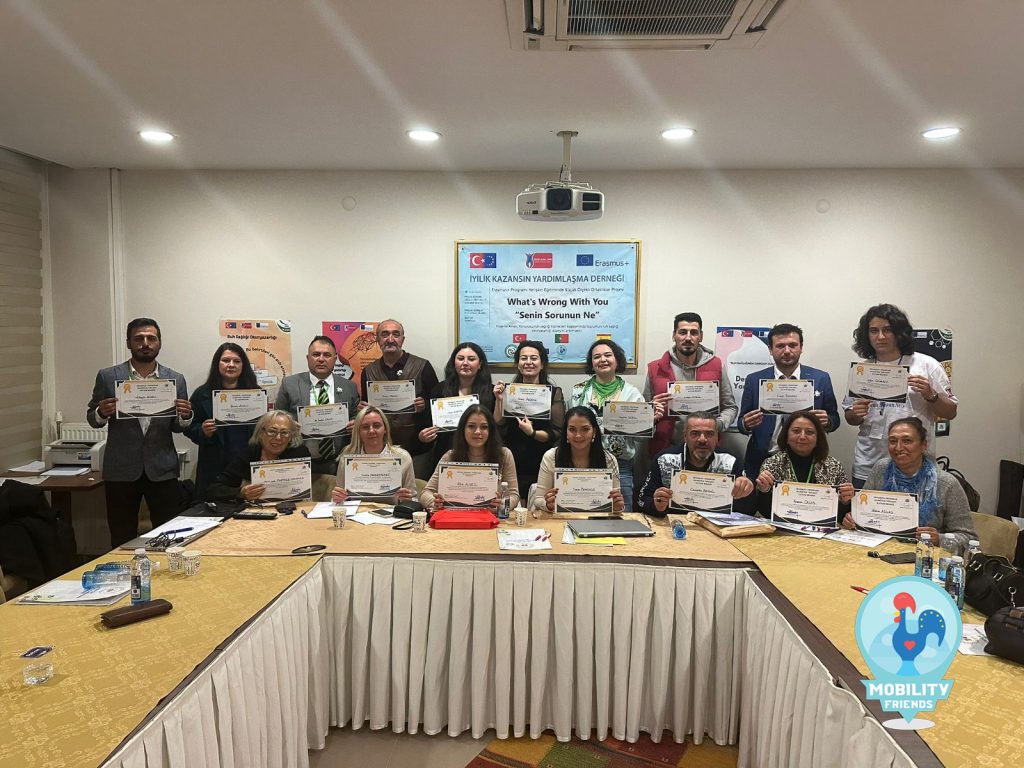
Second TPM
On March 17th and 18th, the beautiful city of Granada, Spain, hosted the 2nd Transnational Project Meeting (TPM) of the “What’s Wrong With You” project. Over these two days, project partners came together to discuss key developments and strategies to enhance mental health literacy.
The first day began with a mental health workshop led by our Spanish partners, focusing on gender discrimination and post-trauma stress, along with practical sessions on breathing techniques. Following this, we conducted a detailed review of the survey results to evaluate the current status and expectations of our target audience, ensuring that project activities align with their needs. This analysis also allowed for a comparative assessment of mental health literacy among stakeholders and helped shape the content of educational materials, including articles, audio content, animations, and videos.

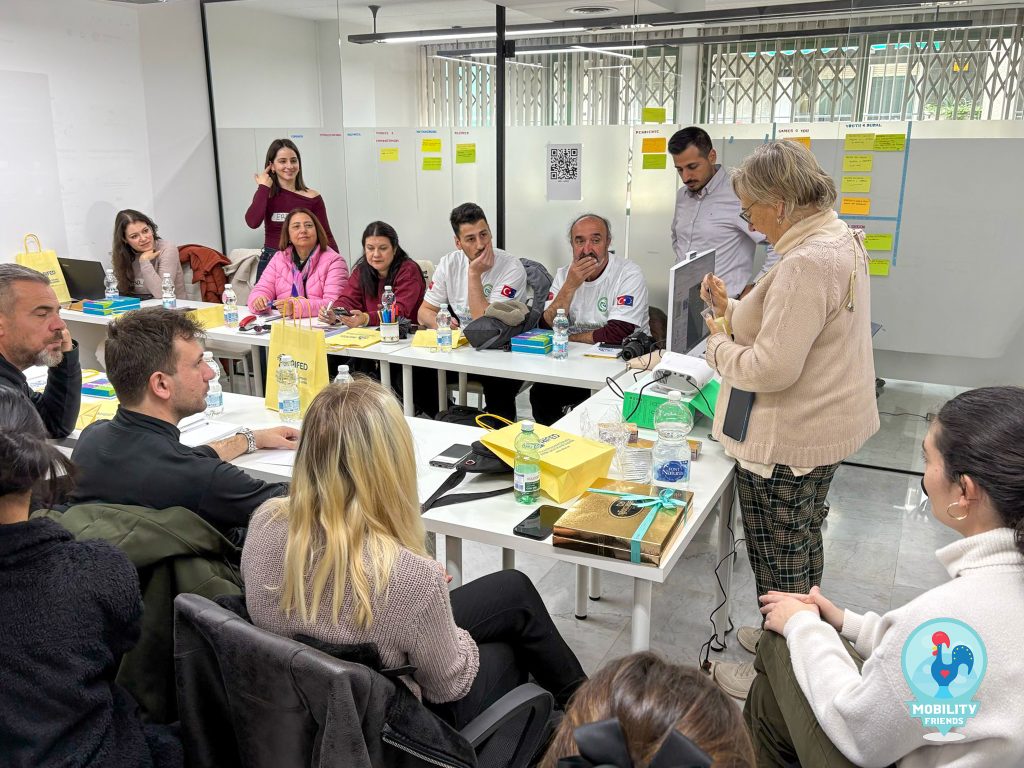
Later in the day, we explored the development of the Digital Mental Health Literacy Resilience E-Learning Platform, discussing its design to ensure it is culturally appropriate, evidence-based, and accessible to disadvantaged groups. We also considered ways to incorporate interactive elements such as breathing exercises and multimedia tools, including 3D animations, to enhance engagement and learning.
On the second day, we focused on dissemination strategies, planning the next steps to maximize the project’s reach and impact. The meeting concluded with the distribution of certificates to participants, marking the successful completion of this important gathering.
The 2nd TPM was a crucial step in strengthening the project, ensuring that we continue to develop accessible and effective resources that promote resilience and mental health literacy.
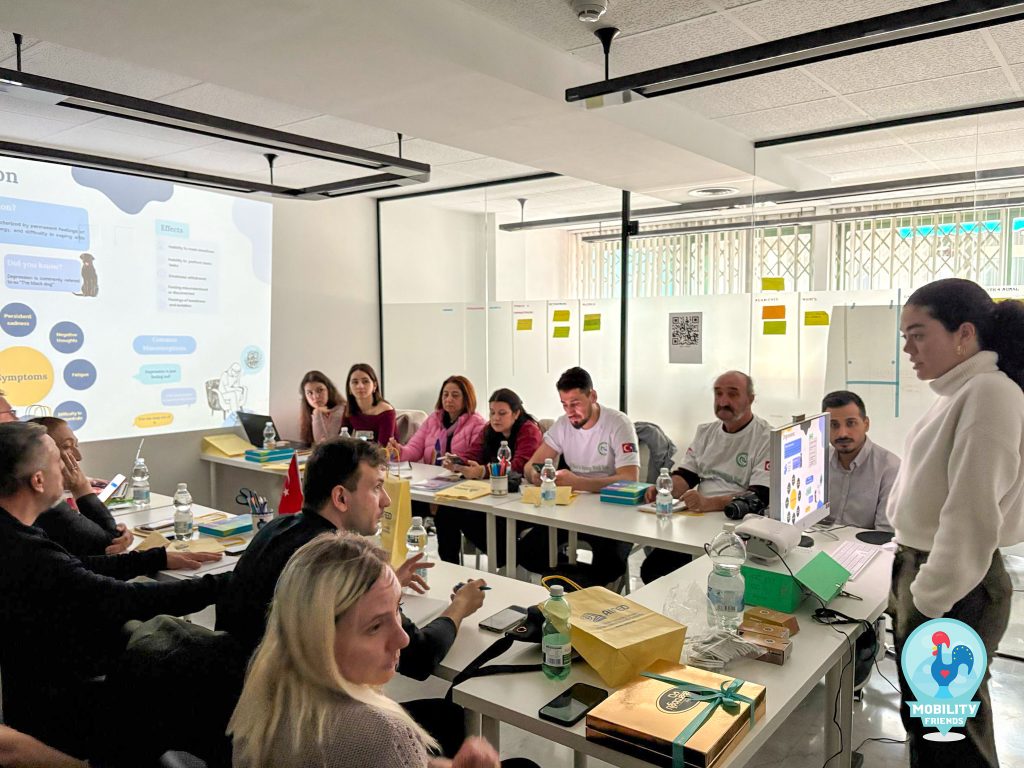
Third TPM
The third Transnational Project Meeting of the project 2023-TR01-KA210-ADU-000183214 – What’s Wrong With You took place in Barcelos, Portugal, from the 11th to the 14th of June 2025, hosted by Mobility Friends. The meeting brought together all project partners and focused on consolidating the work developed so far, reviewing the materials produced, and planning the next steps.
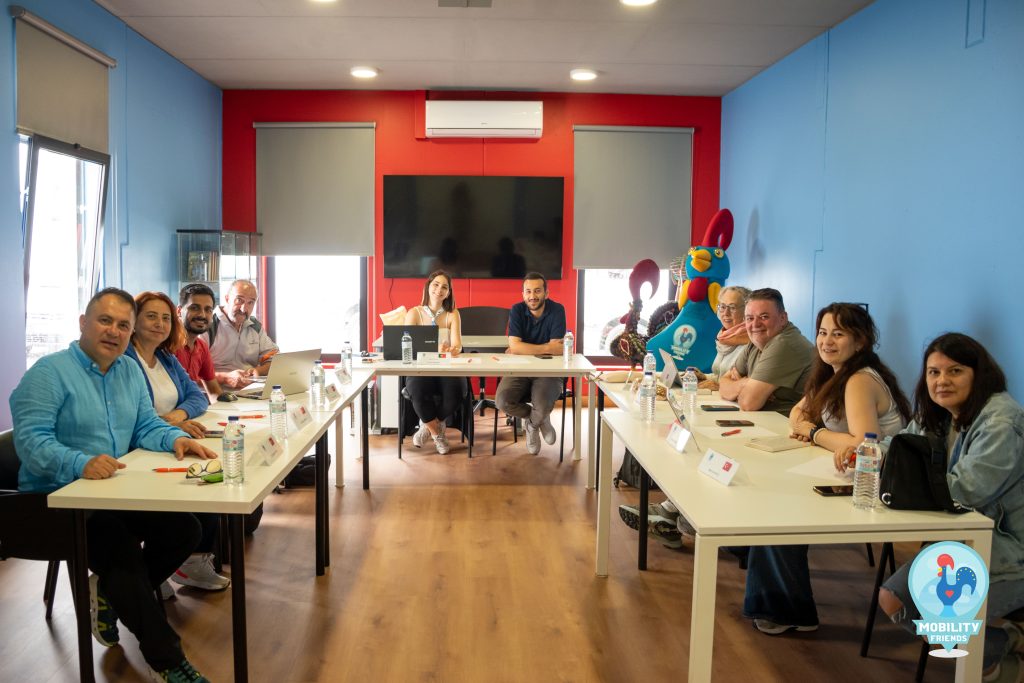
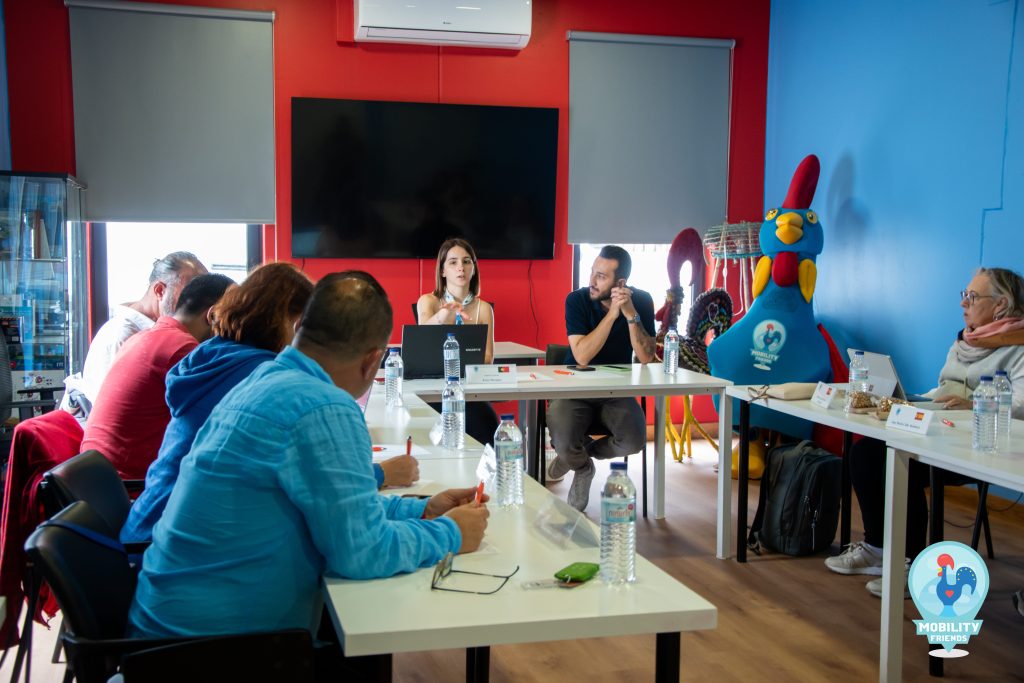
Throughout the meeting, partners participated in cultural and team-building activities, such as a visit to the Barcelos Market and an Art Therapy session. Working sessions focused on reviewing the project’s communication strategy, finalising dissemination materials, and validating outputs such as reports, videos, infographics, and the e-learning module. The team also discussed upcoming deadlines, sustainability of the platform, and final report requirements.
The meeting concluded with a review of the website, evaluation of the TPM, and distribution of participation certificates. This TPM was a crucial milestone in the project’s implementation, as it was the final meeting, strengthening the collaboration between partners and ensuring a solid foundation for the project’s final phase and long-term sustainability.
